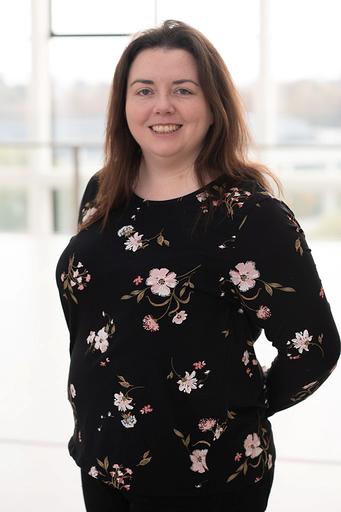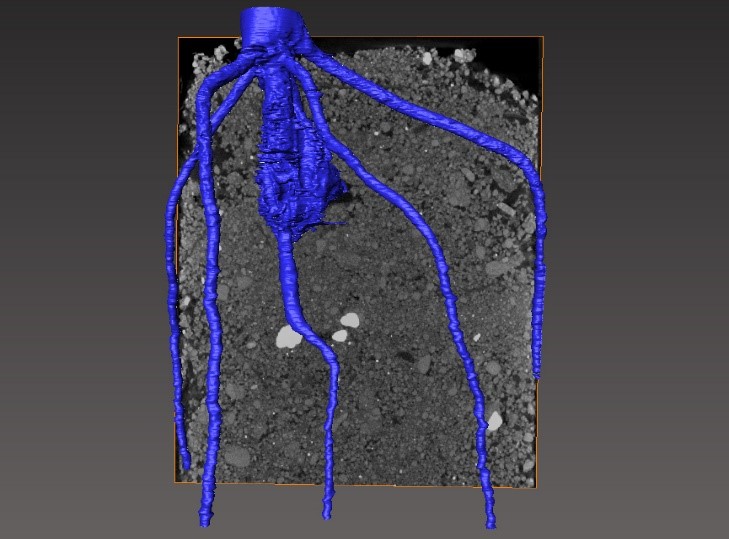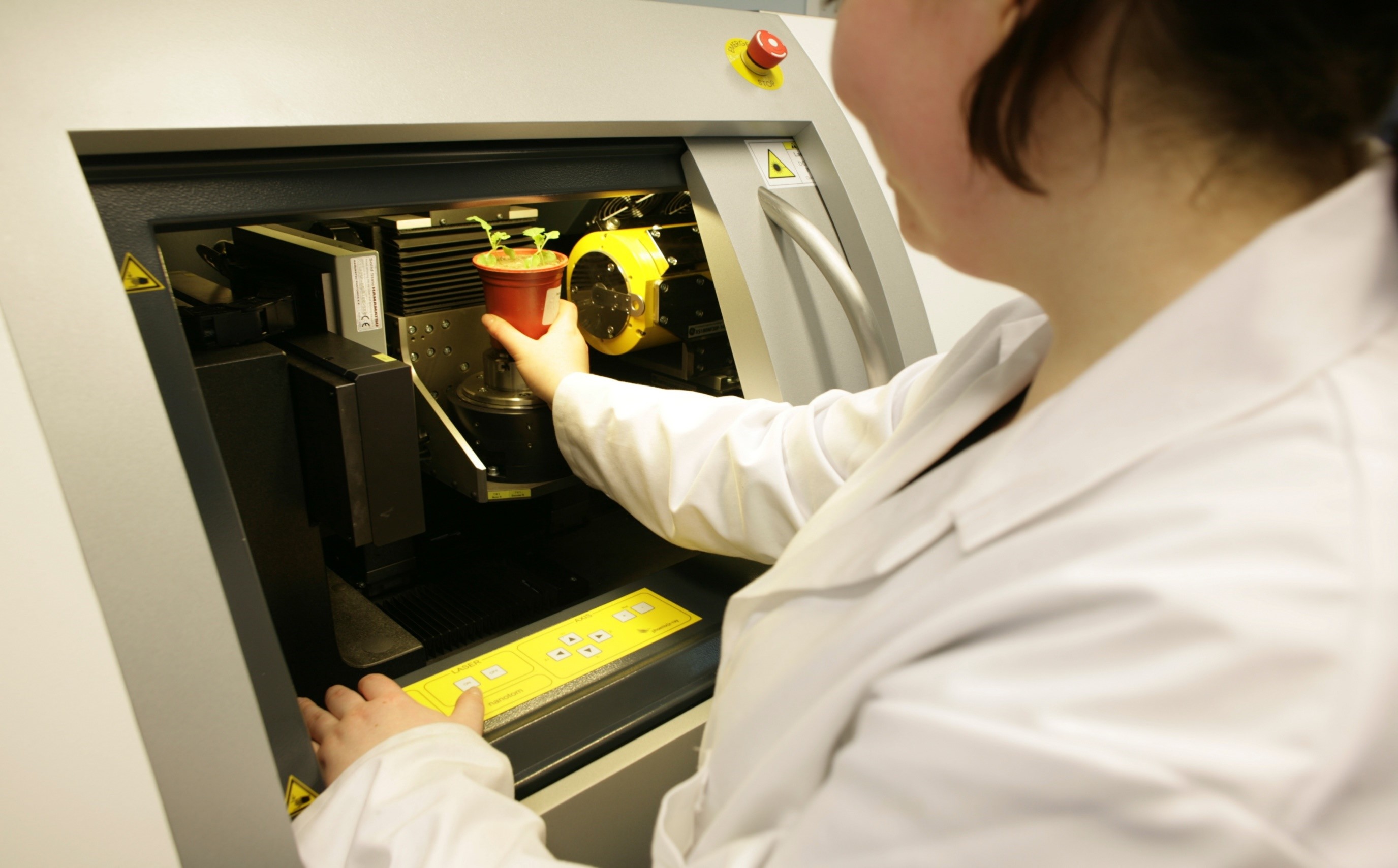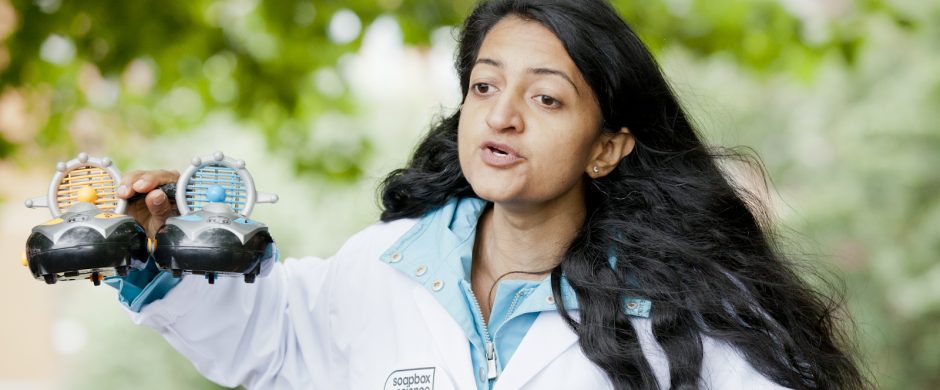
Dr. Saoirse Tracy, University College Dublin (UCD), will be taking part in Soapbox Science Dublin 2019 with the talk: “X-ray vision helps uncover the hidden world of roots and soil”.
She completed her BSc in Environmental Science and received her PhD from the University of Nottingham, U.K. She started in UCD in 2015. She is interested in how plants interact with their environment, especially belowground with soil. She researches how roots grow in response to their physical environment using non-invasive imaging. She works in the field and the laboratory to try and answer questions, which will hopefully make food crops more resilient.
Soapbox Science: What attracted you to Soapbox Science in the first place – and what are you most looking forward to/excited about in taking part?
Anyone who knows me would say that I often get up on my “soapbox” anyway and talk about subjects I am passionate about. So, I thought I may as well do it in a more professional context. At present the public seem to have a thirst for environmental knowledge and action. I want to talk to them about something that is often overlooked and ignored, which is how to roots grow in soil. I particularly like the fact that people will hear me on the streets of Dublin who didn’t plan to come and hear me, that is very exciting.
SS: Tell us about your career pathway
During my secondary school education, I was lucky that we went on several field trips. On one trip, we went to the North Yorkshire Moors and sampled soil and plants down a hillside. I fell in love with soil at this point and wanted to know why some soils were different colours and had different structures. I then went on to do a Bsc in Environmental Science at the University of Nottingham, U.K. I spent a fabulous three years learning from extremely knowledgeable and enthusiastic lecturers. During this period, I undertook a Summer placement and learnt what a PhD was in the second year of my undergraduate studies. I was amazed that people could get paid to do scientific research. This then became my career ambition. I stayed on at Nottingham to complete a PhD as my supervisor had recently acquired some fantastic X-ray CT scanners that would enable us to visualise soil structure non-invasively in 3-dimensions. My PhD looked at the response of roots to soil compaction. I stayed on to complete a three-year post-doc too, which looked at using the images from the X-ray CT scanners to make predictions on how roots uptake water. In 2015 I got a position as Assistant Professor in Applied Plant Biology at University College Dublin and since then have been setting up my own group that uses X-ray CT scanners to answer further questions about the rhizosphere, which is the zone of soil next to a root system.

Dr. Saoirse Tracy during her PhD, on an X-ray CT scanner at the University of Nottingham
SS: What, or who, inspired you to get a career in science?
As a child I watched a programme called ‘The Really Wild Show’ on BBC, I didn’t know it was ‘science’ at the time, but I was fascinated by animals and plants. Later, I wanted to try and “save the world” and I thought scientific knowledge would help my cause. It was at the University of Nottingham that I met some lecturers that inspired me to stay and continue with a career in science.
SS: What is the most fascinating aspect of your research/work?
I am fascinated by the fact that plants and soil are central to our existence on this planet, yet we still know so little about what is happening under our feet and how we can secure our food production for future years. The resilience that roots show and how they overcome obstacles to maintain shoot growth under extreme conditions is amazing.
SS: Research in STEM is increasingly multi-disciplinary. Which subjects do you use in your work?
My research area is extremely multi-disciplinary, I am interested in the rhizosphere zone, which sits at the interface of at least two disciplines, namely soil and plant science. I use a medical imaging device to answer these questions and routinely require computer science, engineering and mathematical skills to carry out my research fully.

One of the first scans Dr. Tracy completed, a young maize root growing in soil that has been extracted from the background image (University of Nottingham).
SS: What do you consider important to your work and why did you pick these?
Firstly, I think you need a genuine passion or interest. If you are curious this will help you initiate the projects, but a good deal of determination and stubbornness is required to see the project through to completion. The people around me often impact on my mood, so having peers you can have a laugh with is crucial. I have worked and currently work with some brilliant scientists and that literally makes my job awesome and worth the hard work.

Putting a plant inside an X-ray CT scanner.
SS: If you could change one thing about the scientific culture right now, what would it be?
I would want a greater appreciation on our time. Often scientists are so dedicated to their research mission they do not leave enough time for other important aspects of their life e.g. family, wellbeing, etc. Increasing demands on our time and a stronger emphasis on ‘metrics’ means that usually non-work demands suffer and I think that encourages a toxic culture, which is not sustainable for many individuals.
SS: What would be your top recommendation to a female student considering pursuing a career in academia?
Apply for those jobs, grants or courses even if you don’t think you are ready and even if other people around you say you are not do it anyway. Be mindful of the advice you get, sometimes it comes with an agenda. So just do what is best for you in the long run. Determine your own fate and don’t be afraid to speak up in meetings and risk looking ‘bossy’ or ‘feisty’, these words are rarely ever used for male scientists.
SS: What words of encouragement would you give to children who might be interested in a career in science
If your teachers say you are not good enough at science, or you don’t have the skills to be a scientist, just use that as fuel and motivation to show them in a few years’ time that you do. If the passion is there you will be able to do whatever you put your mind to.
